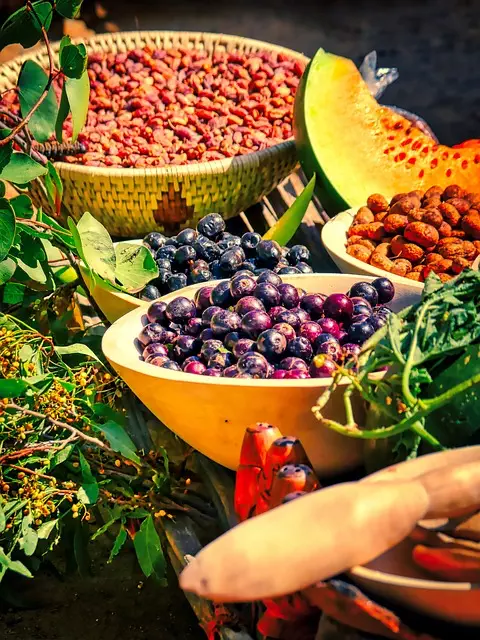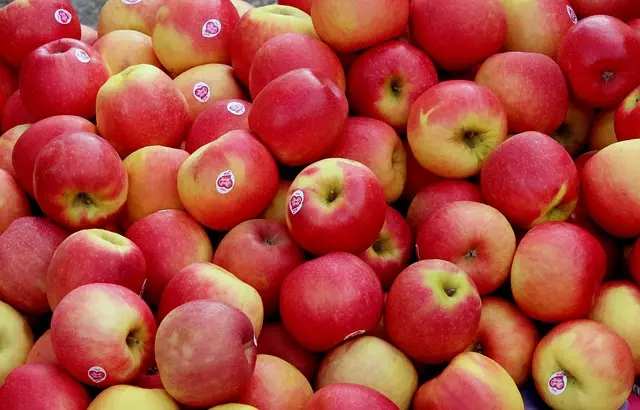The rise of Local Food Delivery services has transformed how people access fresh meals, directly connecting farmers with customers and promoting sustainable farming practices. Meal Preparation kits further enhance this trend by delivering pre-portioned ingredients and recipes, encouraging home cooking, and educating consumers about local agriculture. This innovative approach benefits communities through healthier soil, preserved landscapes, and robust local economies, while also fostering community engagement and regional pride. Despite challenges like ensuring year-round availability and efficient marketing, Local Food Delivery and Meal Preparation kits hold significant promise for both environmental sustainability and community health.
In today’s fast-paced world, local food delivery services have emerged as a convenient solution, connecting consumers with fresh produce from nearby farms. This trend not only benefits individuals seeking wholesome meals but also has a significant impact on sustainable agriculture. The article explores the rise of local food delivery and its potential to foster community engagement with small-scale farmers through meal preparation kits. We delve into the benefits and challenges, highlighting how these services contribute to supporting local economies and promoting environmentally conscious eating habits.
- The Rise of Local Food Delivery Services and Their Impact on Sustainable Agriculture
- How Meal Preparation Kits Can Foster Community Engagement with Local Farms
- Benefits and Challenges: A Comprehensive Look at Local Food Delivery's Role in Supporting Small-Scale Farming
The Rise of Local Food Delivery Services and Their Impact on Sustainable Agriculture

The rise of local food delivery services has significantly transformed the way we access fresh, locally-sourced produce and meals prepared with care. With a few clicks, consumers can now enjoy farm-to-table experiences right at their doorstep. This trend has not only revolutionized the convenience of accessing healthy, sustainable foods but also had a profound impact on supporting local farms and fostering a circular food system. By cutting out intermediaries, these services directly connect farmers to customers, ensuring that small-scale producers receive fair compensation for their fresh produce.
Moreover, local food delivery platforms encourage seasonality and culinary diversity by promoting the consumption of locally grown ingredients. This shift in consumer behavior incentivizes farms to diversify their crops and adapt sustainable farming practices, reducing reliance on mass agriculture and its associated environmental impacts. As a result, communities are left with healthier soil, preserved landscapes, and a richer culinary heritage, creating a more resilient and eco-conscious food ecosystem.
How Meal Preparation Kits Can Foster Community Engagement with Local Farms

Meal preparation kits are a creative way to bring local farms into people’s homes, fostering a stronger connection between communities and their agricultural resources. These kits, often delivered right to customers’ doors, contain fresh, seasonal produce alongside pre-portioned ingredients and recipes. This innovative approach not only encourages individuals to cook at home but also educates them about where their food comes from. By offering diverse and delicious meal options featuring local ingredients, these kits spark curiosity and interest in sustainable farming practices.
Community engagement is enhanced when customers discover the stories behind the produce, understanding the dedication of local farmers. It inspires conversations around the dinner table, fostering a sense of regional pride and encouraging repeat support for local food delivery services. This direct link between farm and fork creates a loyal customer base that actively contributes to the vibrancy and economic health of their communities.
Benefits and Challenges: A Comprehensive Look at Local Food Delivery's Role in Supporting Small-Scale Farming

Local food delivery services have emerged as a powerful tool in promoting sustainable agricultural practices and fostering strong local economies. By directly connecting consumers to nearby farms, these platforms encourage a more transparent and environmentally conscious food system. One of the key benefits is supporting small-scale farmers who often struggle with limited resources and market access. Local food delivery provides them with an opportunity to reach a wider customer base, increase their income, and sustain their farming operations. This direct-to-consumer approach reduces the carbon footprint associated with long-distance food transportation, thereby promoting a healthier environment.
However, navigating the challenges in this system is essential for its long-term success. One significant hurdle is ensuring year-round availability of local produce, as seasonal variations can impact farm output. Efficient meal preparation and inventory management strategies are crucial to overcoming this. Additionally, building a robust network of local farmers and delivery partners requires substantial effort and investment. Marketing these services effectively to both farmers and consumers is vital for gaining traction in a competitive market. Despite these challenges, the positive impact on local communities and the environment makes local food delivery a promising concept worth exploring further.
Local food delivery services have emerged as powerful tools, not just for convenient dining but also for fostering sustainable agriculture. By directly connecting consumers with local farms through meal preparation kits, these services enhance community engagement, support small-scale farming, and promote environmentally conscious eating habits. While there are challenges to scale and accessibility, the benefits of local food delivery extend far beyond the dinner table, enriching regional landscapes and ensuring a vibrant future for local agriculture.



